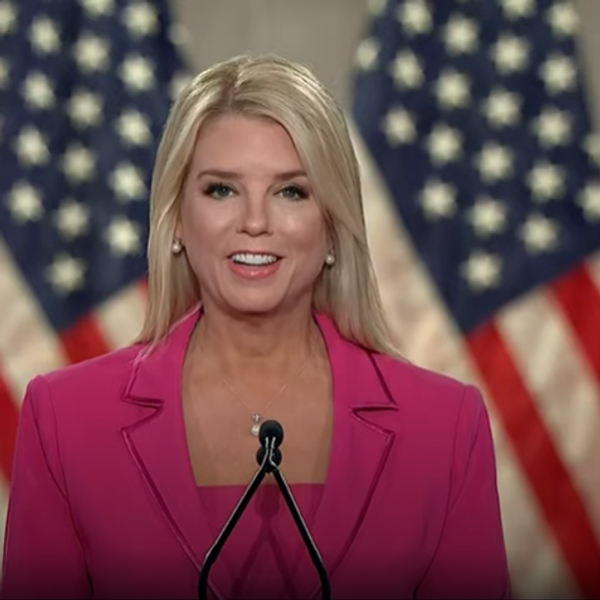Trump Names Conspiracy Kook Kari Lake To Head Voice Of America
Donald Trump has chosen former local TV anchor, conspiracy theorist, and two-time election loser Kari Lake to head Voice of America. As head of the network, she will be in charge of its reporters and will shape how America is perceived around the world.
VOA is an international media network funded by the United States founded in 1942. The network reaches approximately 326 million people per week and has been the international face of America at pivotal moments in world history.
During World War II, VOA broadcasts were aired to Nazi-led Germany and the rest of Europe providing an American perspective to many who would otherwise not hear it. The network served a similar purpose during the Cold War, providing the American point of view behind the Soviet-led “Iron Curtain.”
VOA has traditionally been editorially independent but with the Lake selection, Trump is likely to restart efforts he began in his first term to turn the VOA network into another pro-Trump propaganda outlet. After all, Lake has referred to journalists reporting accurate information as “monsters.”
Lake is coming off of her second election loss, as she was defeated in her bid for Arizona’s open Senate seat by Rep. Ruben Gallego, a Democrat. Lake also lost the 2022 gubernatorial race in Arizona against now-Gov. Katie Hobbs.
After losing that race, Lake promoted a conspiracy theory that she had actually won the race. In a December 2022 speech, Lake identified herself as a “proud election-denying deplorable.”
In fact, Lake first gained national prominence for her promotion of conspiracy theories. After Trump lost the 2020 election to President Joe Biden, Lake frequently falsely described the election as “stolen.” Lake even called for Arizona’s official election results, where Biden defeated Trump, to be decertified.
Lake’s cultlike devotion to Trump extends beyond supporting his election conspiracies and his hardline anti-immigrant stance. She was once infamously photographed vacuuming a red carpet before meeting with Trump.
In addition to election denialism, Lake also has connections to the extremist QAnon movement. QAnon believers promote a debunked conspiracy theory about global elites trafficking children and stealing their blood. In January, Lake headlined a political fundraiser organized by wealthy QAnon supporters.
Trump’s previous administration threatened the editorial independence of Voice of America after it accurately reported negative news on Trump and then-Vice President Mike Pence. Now, with the planned installation of Lake, the network will be led by a fellow traveler in Trump’s world of conspiracies.
Reprinted with permission from Daily Kos.












